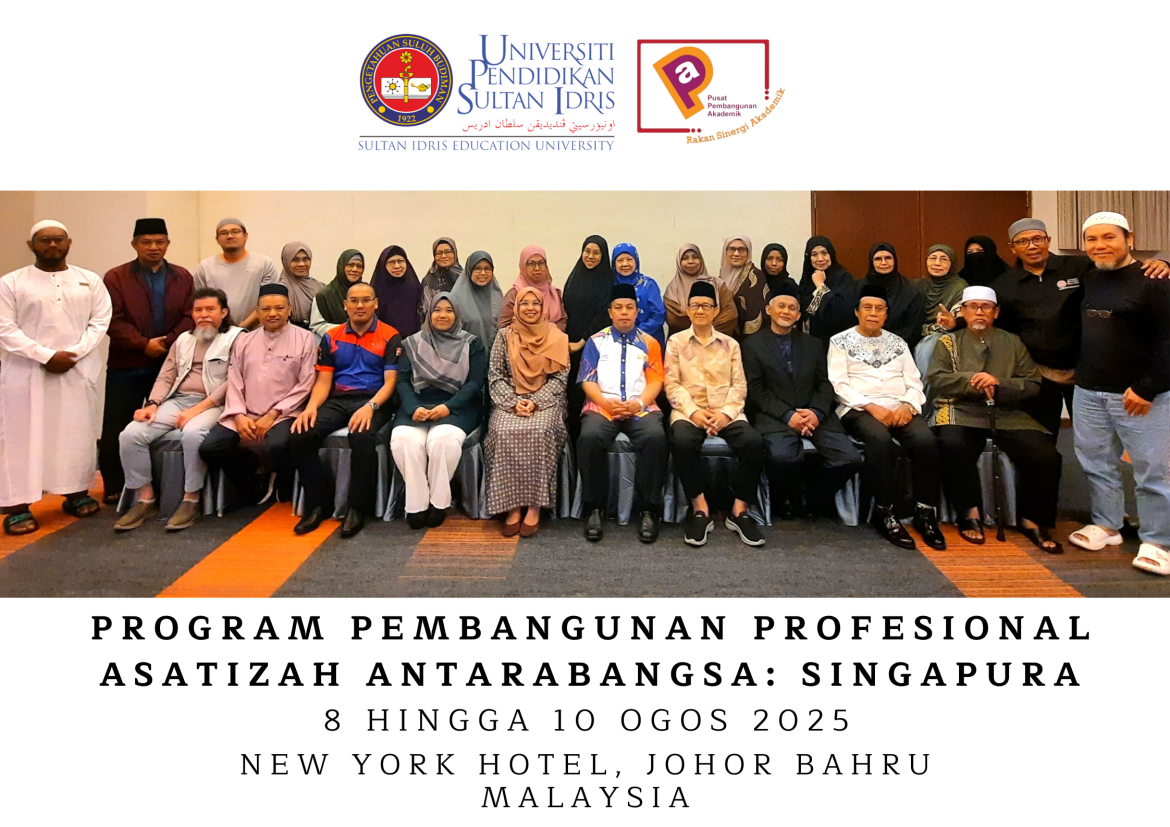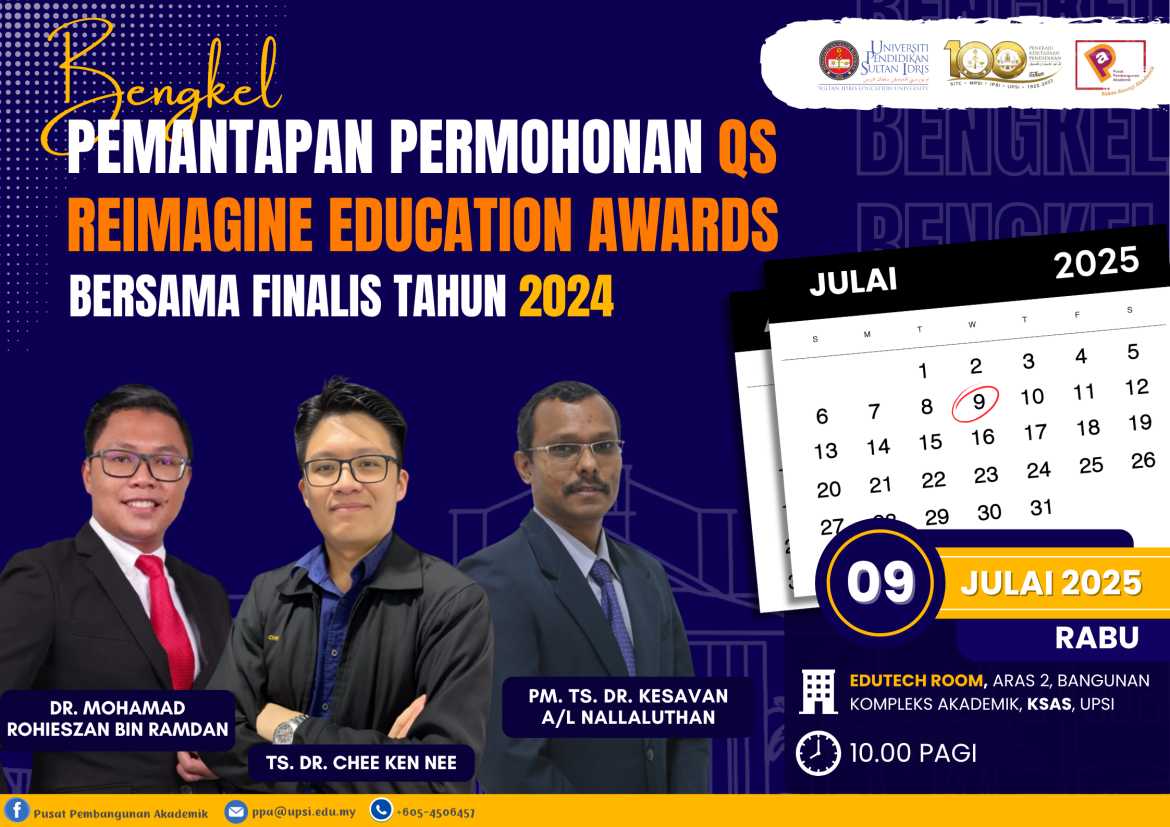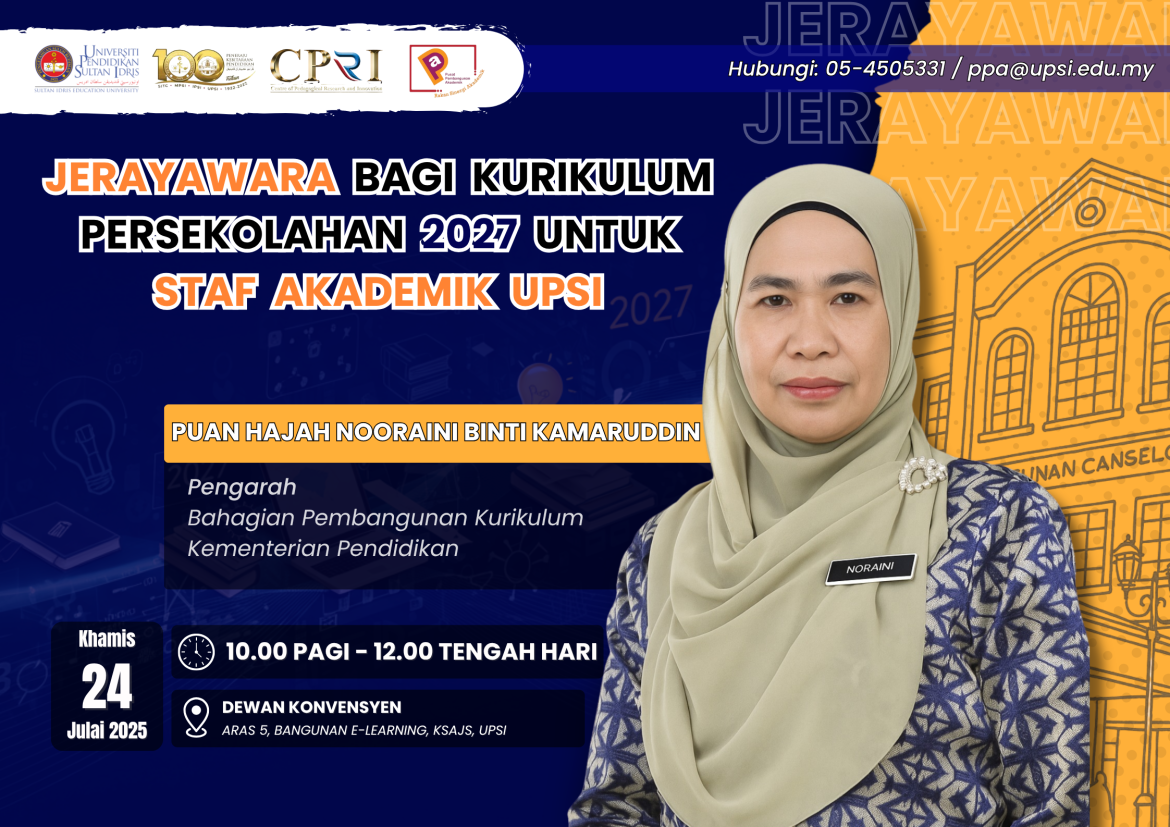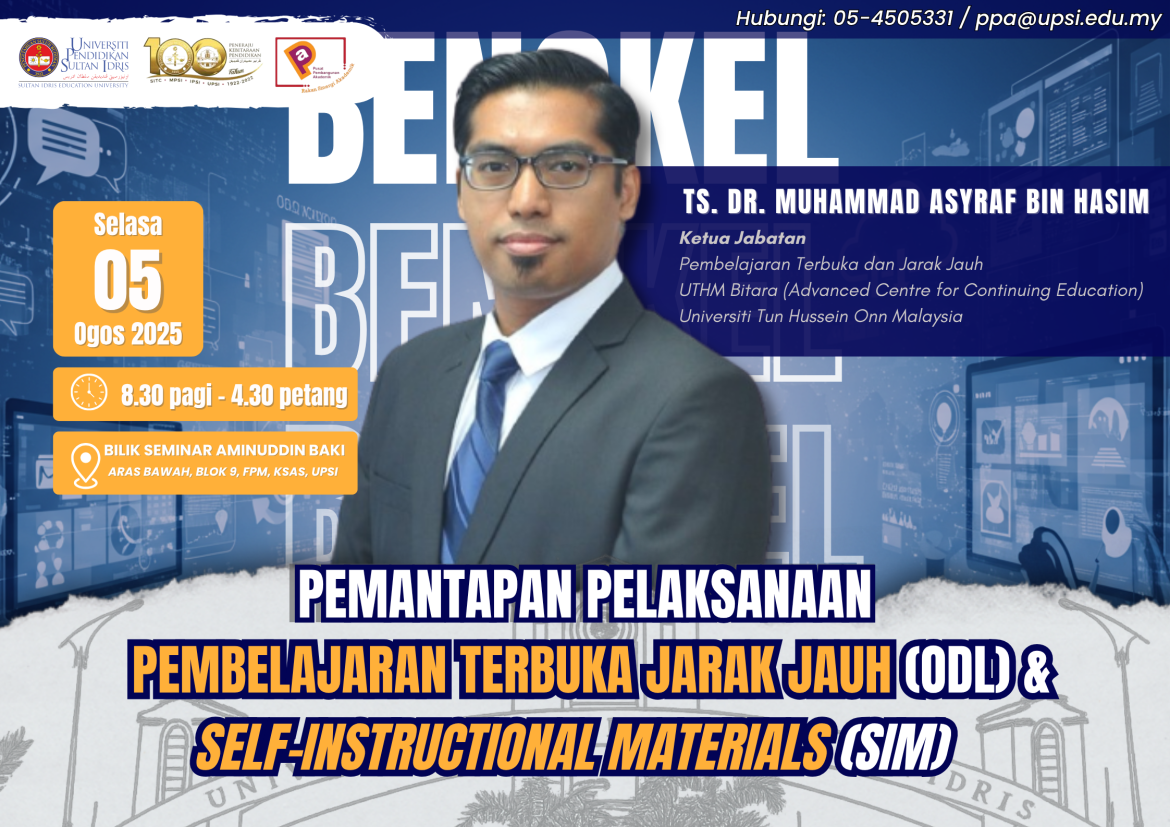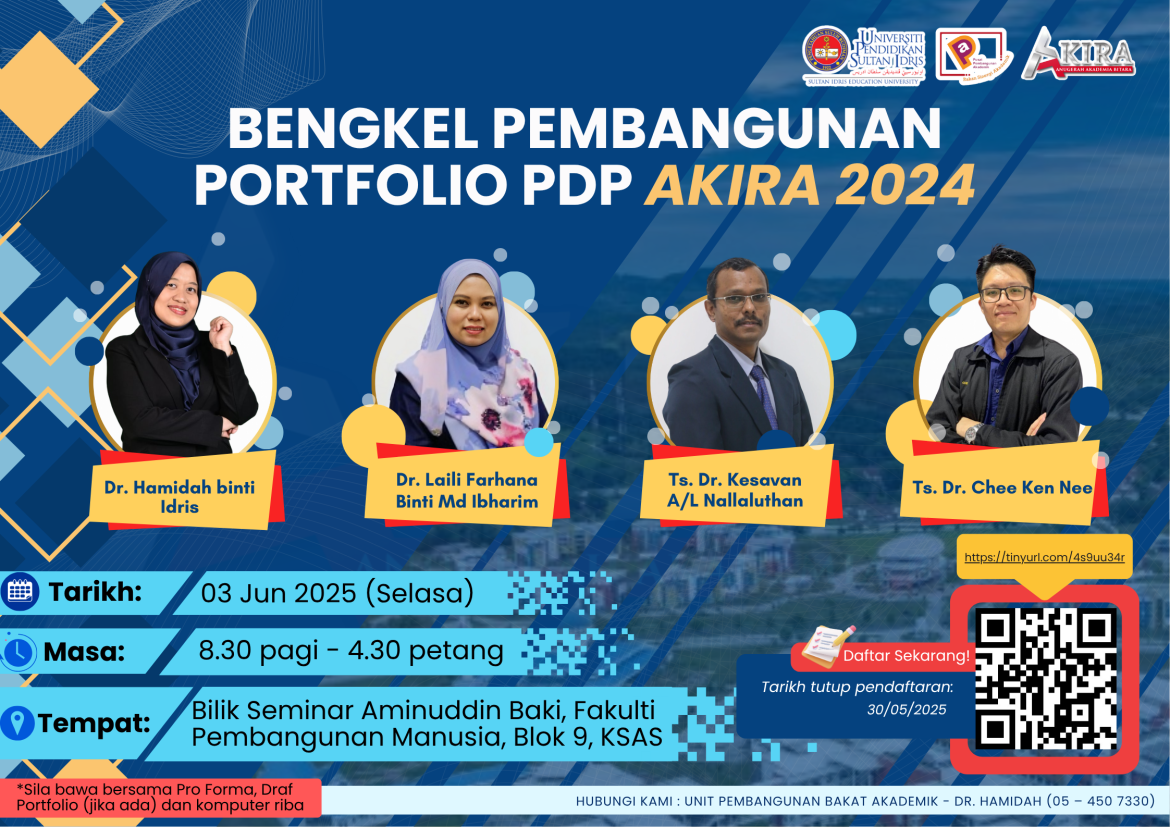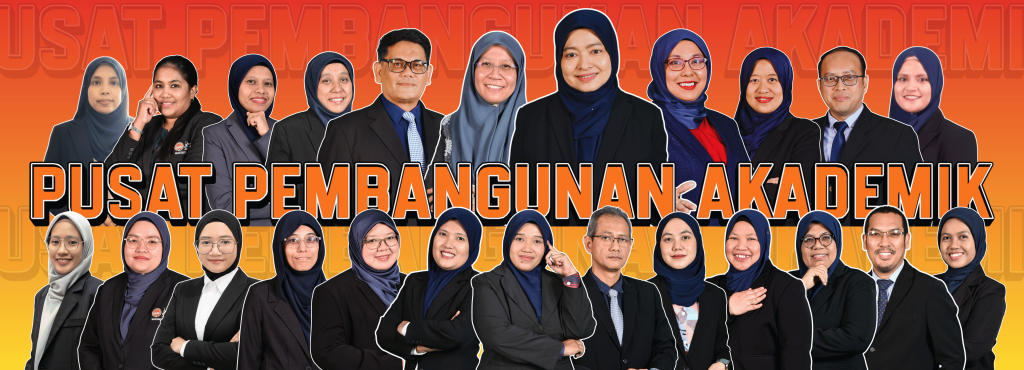

Welcome to the official website of the Center for Academic Development (PPA), Universiti Pendidikan Sultan Idris (UPSI) — a leading education university in Malaysia committed to advancing excellence in higher education. As a dynamic and innovative centre within UPSI, PPA drives transformative change through strategic curriculum development, impactful teaching and learning initiatives, and progressive educational technologies. Our mission is to continually enhance academic quality and deliver the best education in Malaysia to nurture future-ready graduates.
Guided by our vision to be a bold and dynamic centre of excellence, PPA offers a wide range of services and support including academic advising, curriculum review, and strategic academic initiatives such as APEL, Outcome Based Education Reporting System (OBERS), MOOCs, Micro-Credentials, and Service Learning Malaysia: University for Society (SULAM). We also coordinate the prestigious Akademia Bitara Award (AKIRA) and conduct workshops and training to strengthen academic innovation among UPSI’s educators.
Through these initiatives, PPA continues to uphold and enhance UPSI’s reputation as a top Malaysia university and a benchmark for academic distinction. Explore our website to discover our programs, resources, and services — and join us in our mission to shape the future of education at UPSI Malaysia.
NEWS & ANNOUNCEMENT
SOCIAL MEDIA
